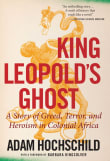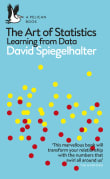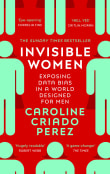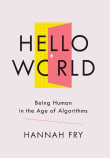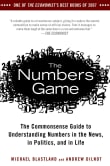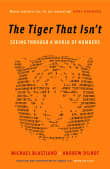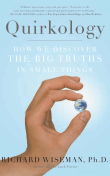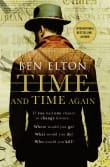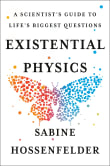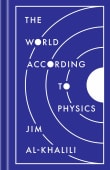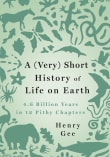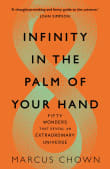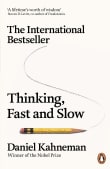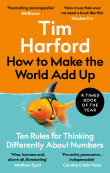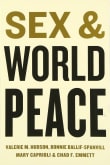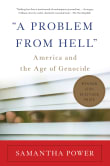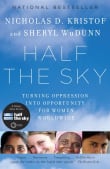Factfulness
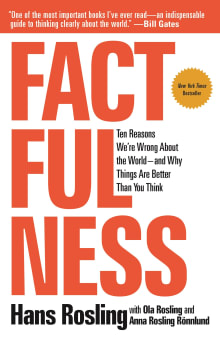
Book description
'A hopeful book about the potential for human progress when we work off facts rather than our inherent biases.' BARACK OBAMA
'One of the most important books I've ever read - an indispensable guide to thinking clearly about the world.' BILL GATES
*#1 Sunday Times bestseller * New York Times…
Why read it?
9 authors picked Factfulness as one of their favorite books. Why do they recommend it?

In this book, Rosling repeatedly and humbly shows how so many of the facts I thought I knew about the world—such as where energy comes from, how incomes compare across countries, or how many people are being affected by disasters—were just plain wrong.
I first saw Hans Rosling explaining the trajectories and development of countries using animated charts in a hugely popular TED talk. Through persuasive charts and explanations, he showed me how things can be bad and still be getting better and how the world has already improved in so many ways. I read it and was educated.
From Jono's list on changing how you look at the world and yourself.

It's amazing how our thinking is influenced by a biased statement. This book shows that there is still hope when you look at the real facts.
The author asks a number of questions that require basic knowledge of everyday data that we read a lot about in the press. Questions such as: "How many people in the world are illiterate?" or "How many women are not educated?" are answered incorrectly by politicians, bankers, and scientists, those who determine our policy.
It is confronting to realize that more questions could have been answered correctly by simply guessing.
From Gerard's list on trying to explain basics in human behavior and decision making in a scientific manner.

Factfulness is a critical tool for showing that the world is knowable and making the case for optimism.
Beloved by Bill Gates—who called it “[one] of the most important books I’ve ever read”—the book shows how our perspectives get distorted by the information we consume every day. It also shows how taking a fact-based worldview can drastically reduce the anxiety and fear so many of us feel right now.
From Tobias' list on why everything feels terrible right now.

This book is an inspirational call to get a sense of the real state of our world through facts, by Hans Rosing, a WHO leader with an amazing international experience.
Hans started writing this book as a legacy when he learned about his cancer and finished it just before passing away. It highlights the positive progress that has been made in the world, showing how our perspective is biased by our morbid attraction to bad news.
The book starts with the most mind-blowing quiz in book history, featuring basic questions that everyone fails. It shows how misguided we are about…
From Vincent's list on the world is getting better and the best is yet to come.

Factfulness was an awesome book to read because working in global affairs and international development can be stressful and sometimes discouraging.
Most of us are in this line of work because we want to help make the world a better place, but it can be a real uphill battle and feel overwhelming at times. There is so much suffering in the world that our efforts sometimes feel like they are not making an impact.
And that is where Factfulness comes in! It helped me take a step back and appreciate the successes and progress that has been made. It gave…
From Lyla's list on becoming a global citizen and ordinary hero.

Because sometimes you just can’t face reading another depressing news story. Rosling, with astonishing clarity, steps back and shows us just how much the world has improved. Of course, things are not perfect, of course we need to do better. But it is also important to recognise just how much better some things have got. Guaranteed to make you feel just a bit more optimistic about humanity.
From Rebecca's list on economics for people who are allergic to algebra.

For many, the most mysterious thing about science is the way that it relies on mathematics. Many find the way that numbers are used and presented impenetrable. Yet in this wonderful book, the late Hans Rosling shows just how and why our biases make it so difficult for us to put realistic numbers to what’s happening in the world around us. All around the world, people were asked questions about the state of the world and consistently their answers were worse than choosing at random—because we almost always think things are far worse than they really are. Rosling uncovers the…
From Brian's list on making the deep mysteries of science approachable.

The subtitle of this book is a pretty accurate summary. The more pessimistic opinion often seems the more plausible, but these Swedish researchers provide lots of data, graphs and logical sense to show that things are not as black, or as black and white, as we often think.
I hate being wrong about things, but worse than being wrong is staying wrong once you know better, so with some discomfort but a lot of pleasure I learned from this book why labels like ‘the third world’ and ‘the global south’ are inexact and unhelpful, and what toothbrushes and children…
From Karen's list on challenging your preconceptions.

I was lucky enough to meet Hans Rosling several times while he was alive. He was a simply magnificent communicator, a superb advocate for the power of data, a man whose optimism was always realistic and based on reality. This book, written with his daughter-in-law and son, really captures the man. It’s as though Hans is speaking – and what a voice he had.
From Tim's list on think clearly about data.
Want books like Factfulness?
Our community of 12,000+ authors has personally recommended 100 books like Factfulness.
